"What is happening in Niger, if it succeeds, is the end of democracy in Africa. It's over…” said Boubacar Sabo, the Deputy Secretary-General of the Nigerien Party for Democracy and Socialism, referred to the end of African democracy in August. Located in the Sahel region of West Africa, Niger has experienced political instability since independence from France in 1960. What is happening in Niger today and what impact will the coup have on Africa as a whole?
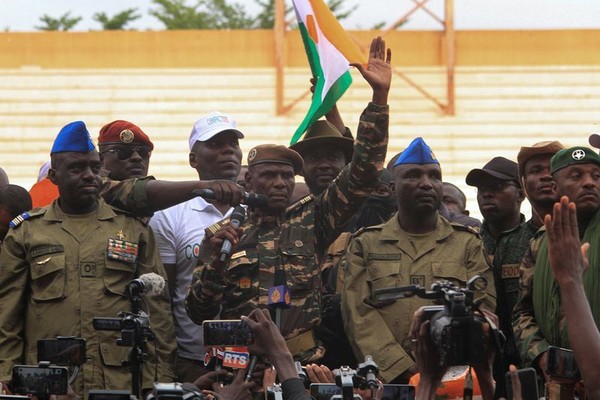
What’s Happening in Niger Now?
Mohamed Bazoum, the President of Niger since 2021, is the first national leader to have been democratically elected through a peaceful process since the country gained independence from France in 1960. However, on July 26th of this year, military forces in Niger staged a coup. Presidential guards detained President Bazoum at his official residence in Niamey, the capital of Niger. On the same day, Colonel Amoudou Abdramane issued a statement on state television, declaring, “The defense and security forces … have decided to put an end to the regime you are familiar with … This follows the continuous deterioration of the security situation, the bad social and economic management.” The next day, Abdourahmane "Omar" Tchiani, the head of the presidential guard, appointed himself as the leader of the new military government. In addition, hundreds of coup supporters looted the headquarters of the ruling party in Niamey and set it on fire causing a massive violent uproar. Meanwhile, President Bazoum boldly confronted the coup, declaring that democratic forces, not the coup forces, would ultimately prevail in Niger.
Reacts to Coup d’État
Imposed Sanctions by Foreign Countries
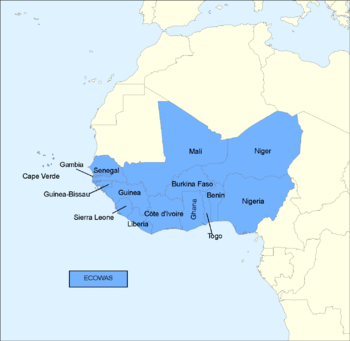
In response to the military coup, European countries such as Germany and France sought to deter the coup plotters by suspending support to Niger. Particularly, the Economic Community of West African States (ECOWAS[1]), which aims for the prosperity of the African community, actively resisted this coup. On July 30th, at an emergency summit held in Nigeria, ECOWAS demanded that the coup leaders restore President Bazoum to power within a week. Otherwise, ECOWAS announced that it would take all possible measures, including the use of force, to restore constitutional order. Furthermore, on July 31st, The Central Bank of West African States (BCEAO) canceled Niger's planned issuance of 30 billion CFA francs[2] ($50 million) worth of bonds in the West African bond market, escalating the sanctions. On August 2nd, Nigeria, which supplies 70% of Niger's total electricity, cut off its electricity exports to Niger.
Unbowed Coup d’État Forces
On the same day, in a televised address, General Tchiani criticized ECOWAS sanctions as illegal and inhumane. He urged Nigerians to take up a defensive posture to defend the country. On March 3rd, Amadou Abdramane, a spokesman for the junta, announced the withdrawal of five military agreements with France, marking a significant deterioration in diplomatic relations between France and Niger. As the deadline for President Bazoum's return set by ECOWAS, the coup leaders turned to the Wagner Group[3] for assistance on August 5th. On August 9th, Rhissa Ag Boula, a political leader among the anti-government forces in Niger, announced that the Council of Resistance for the Republic (CRR) had launched a movement aimed at reinstating Bazoum.
Using Force, Is It the Best Solution?
Since the coup forces never gave in to the economic sanctions, this led to ECOWAS to its last resort: "the use of force." On August 18th, ECOWAS members made an agreement on a potential military intervention, referred to as "D-day," to restore democracy in Niger. Out of ECOWAS's 15 member countries, 11 agreed to commit troops to this operation. In response to this strong ECOWAS stance, Tchiani, Niger’s military leader, held talks with an ECOWAS delegation. After the meeting, Tchiani proposed a three-year transition of power. He also appeared on state television to announce that the principles of this measure would be decided within 30 days at a meeting of the military commission. Amidst the chaos in Niger, the UN criticized the coup attempt and called for the release of detained government officials by the coup leaders. The UN also pledged to continue civilian assistance to minimize civilian casualties. The US Institute of Peace (USIP) also emphasized that civilian casualties should be avoided during the response to the coup. This is because causing harm to civilians could further exacerbate the underlying causes of insurgency and violent extremism in the Sahel region.
The Factors of Niger Coup d’État
The Loose Democracy
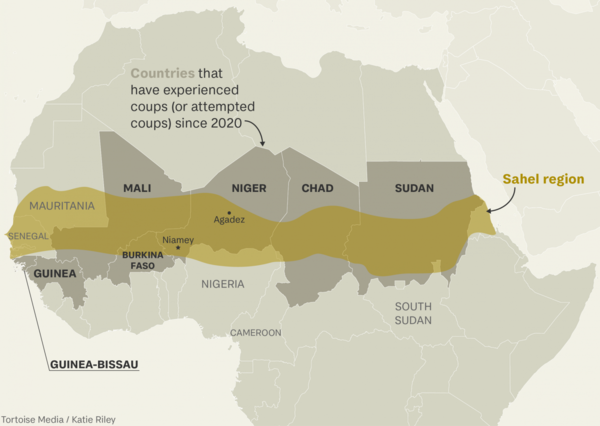
The Sahel region where Niger is located, is known as the most frequent hotspot for coups, earning it the nickname ‘Coup d’État Belt.’ In modern history, Niger has experienced coups on five occasions, in 1974, 1991, 1996, 2010, and now in 2023. Additionally, since 2011, Niger has been caught in conflicts with rebel groups in the Sahel region. The turmoil in Libya at the time led to the dispersion of rebel forces across the entire Sahel region, including Burkina Faso and Mali. The clashes have resulted in more than 1,000 deaths and over 2.8 million migrants throughout the Sahel region since 2019. Experts have even referred to the Sahel as the "global epicenter of jihadist violence." Amidst the chaotic situations in neighboring countries, Niger's fragile democracy has exposed its vulnerabilities. According to an analysis[4] by the United States Institute of Peace (USIP) on August 10th, the chaos and persistent coups in the Sahel reveal the true face of a degenerate democracy. This weakened democracy weakens the legitimacy of the state and annihilates the democratic defenses that should protect democratically elected leaders. Within this context, various forces of extremism, rebellion, and violent political outbursts, including coups, become inevitable. On August 3rd, the Council on Foreign Relations (CFR), an international affairs-focused media outlet, reported that in such circumstances, Niger's vulnerable agricultural situation due to climate change and a severe poverty rate of 40% have contributed to instability.
Other Political Factors
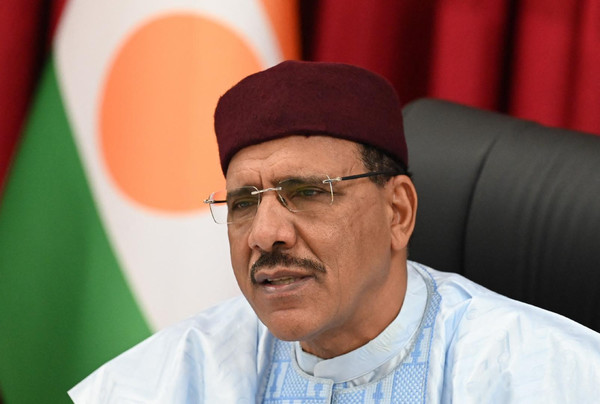
In addition to external instability and economic recession, there are internal factors. One prominent factor is the controversy surrounding President Bazoum's ethnicity and legitimacy. Bazoum comes from the marginalized Arab ethnic group, and is the first president who is not from the majority Hausa-Fulani and Djerma ethnic groups that have historically held power since independence. The existing elite perceived Bazoum as ‘foreign’ and directed skeptical views toward his presidency. This was a hotly contested issue in the previous election campaign and even before Bazoum's inauguration, there was an attempted coup by some Air Force officer forces. According to a July report by the global community media outlet The Conversation, his handicap as a ‘non-mainstream ethnic group’ was a major obstacle of Bazoum's successful political performances within military circles which consist primarily of mainstream ethnic groups, even though he received about 56% support at the time of the presidential election and is from the same party as former President Issouf. Furthermore, The Conversation pointed out the initial failure of firm and bold stances by regional organizations like ECOWAS and the African Union as a reason for the maintenance of coup power. In the past four years, there have been seven coup attempts in the Sahel region, and three of them were successful. Jo Adetunji, the Editor of The Conversation UK, analyzed that these failures have probably instilled in the coup forces in Niger the perception that their sanctions are no deterrence.
Influences & Significance of the Coup d’État
The Expansion of Islamic Extremist Forces
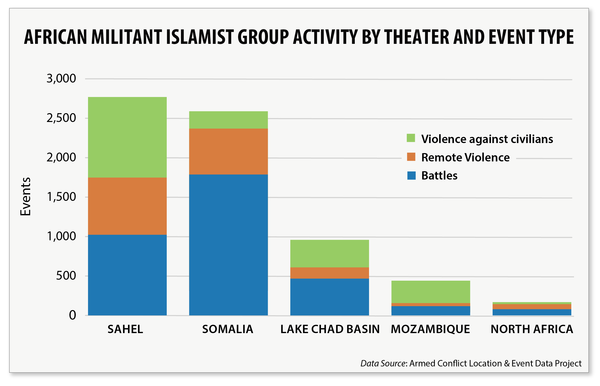
Meanwhile, Western powers have considered Niger a critical region for preventing the expansion of Islamist extremist forces. The United States and France have called Niger the ‘cornerstone’ of the Sahel counterterrorism plan to stop Islamic extremist militants such as IS and al-Qaida. The U.S. and France have each deployed over 1,000 troopers across Niger and maintained military bases to counteract the armed extremist groups. However, these economic and military interventions have increased tensions between Niger and Western powers as counterterrorism policies and the fight against extremist groups have intensified. According to a report by CFR, the Nigerien military leadership expressed ongoing dissatisfaction with the lack of clear progress in the counterterrorism support. If U.S. and French troops were to withdraw due to the destruction of the Niger-French military agreement and sanctions, they would lose a foothold in the fight against Islamic extremist militants. Boubacar Moussa, a former jihadist fighter, stated in an interview with AP that "The coup in Niger could boost the ability of Islamic extremists to recruit in the country, potentially increasing violence and further threatening the stability of Africa’s Sahel region."
The Expansion of Russian Influence in the Sahel
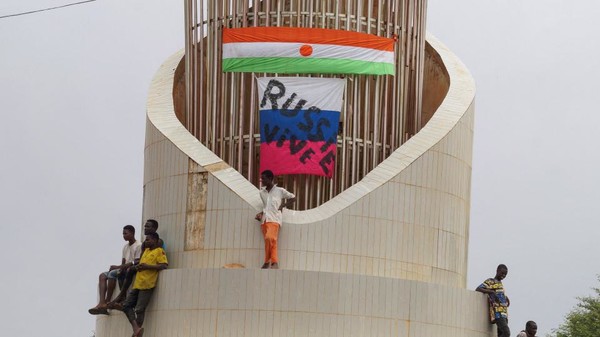
According to materials published by the Carnegie Endowment[5], Russia has invested heavily across Africa. These investments have yielded considerable success in politically isolated and security-challenged countries in the Sahel region. For instance, in 2017, when the UN Security Council abruptly halted arms supplies to the Central African Republic (CAR), Moscow swiftly dispatched Wagner Group arms and military instructors to there. Wagner's expansion into Africa threatened the existing French political and economic influence in the region. Russia gained access to political, diplomatic influence, and lucrative mining assets in the continent with its expansion into Africa through the Wagner Group. On August 8th, U.S. Secretary of State Antony Blinken told the BBC that "Russia's Wagner mercenary group is 'taking advantage' of instability in Niger."
Dr. Joseph Sany, Deputy Director of the USIP Africa Center, emphasized the need for international cooperation to restore democratic governance among the people of Niger, beyond resorting to violent methods such as military intervention. Given that Niger is a region where U.S. and Western forces clash with Russian forces represented by the Wagner Group, in addition to security issues within the Sahel region, we must continue monitoring the situation surrounding the Niger coup and its aftermath.
[1] ECOWAS is a regional community formed for the economic and political union of 15 West African countries.
[2] The CFA franc is the currency used in countries that were French overseas territories or colonies. Most notably the West African countries of Niger, Senegal, and Togo.
[3] The Wagner Group is a private military company from Russia that is widely perceived in the West as effectively serving as a private army under the command of President Vladimir Putin. It has been involved in various conflict regions in the Middle East and Africa, engaging in activities that support Russophilia and conducting paramilitary operations.
[4] How to Respond to Niger’s Coup — and Prevent the Next One, Joseph Sany, Ph. D, August 10th, 2023
[5] Russia’s Growing Footprint in Africa’s Sahel Region, Paul Stronski, February 28th, 2023

